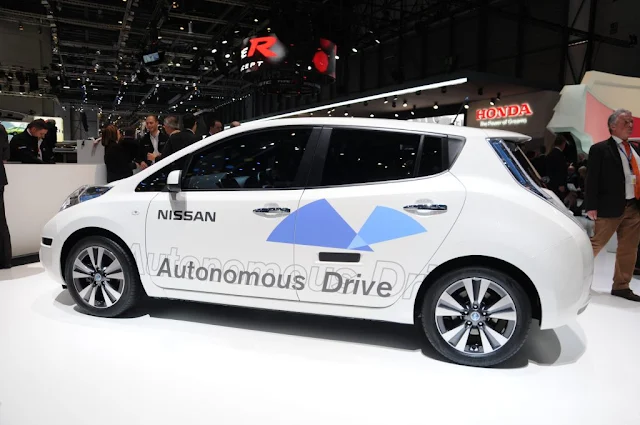Introduction
By 2050, transportation technology will have undergone a significant transformation. Innovations in this sector are expected to address current challenges such as congestion, pollution, and inefficiency, making travel faster, safer, and more sustainable. This article explores the potential advancements in transportation technology and their implications for society.
Autonomous Vehicles
One of the most anticipated advancements in future transportation is the widespread adoption of autonomous vehicles (AVs). By 2050, self-driving cars, trucks, and buses are expected to dominate the roads. These vehicles will use advanced AI, machine learning, and sensor technologies to navigate and make decisions in real-time, significantly reducing the risk of human error-related accidents.
AVs will also optimize traffic flow, reducing congestion and travel time. For example, platooning, where autonomous trucks travel in tightly packed groups, will improve fuel efficiency and reduce emissions. In urban areas, AVs will enable more efficient ride-sharing services, decreasing the need for individual car ownership and freeing up space currently used for parking.
 |
| The Future of Transportation Technology in 2050 |
Hyperloop and High-Speed Rail
High-speed transportation will also see significant advancements by 2050. Hyperloop technology, which involves passenger pods traveling through low-pressure tubes at speeds exceeding 700 mph, will revolutionize long-distance travel. This system promises to cut travel times between major cities drastically, making commuting feasible over much greater distances.
Additionally, advancements in high-speed rail technology will create a global network of fast, efficient trains. These trains will use magnetic levitation (maglev) and other cutting-edge technologies to travel at speeds of up to 400 mph, offering a sustainable alternative to short-haul flights.
Electric and Hydrogen-Powered Vehicles
The shift towards sustainable energy sources will be a critical component of future transportation technology. By 2050, electric and hydrogen-powered vehicles will be commonplace. Advances in battery technology will enable electric vehicles (EVs) to travel longer distances on a single charge and reduce charging times to mere minutes.
Hydrogen fuel cells will provide an alternative for larger vehicles, such as trucks and buses, which require longer ranges and faster refueling times. Hydrogen production will become more efficient and environmentally friendly, using renewable energy sources like solar and wind power to produce green hydrogen.
Urban Air Mobility
Urban air mobility (UAM) is another area poised for significant growth by 2050. Vertical take-off and landing (VTOL) aircraft, commonly referred to as flying cars, will provide a new mode of transportation in congested urban areas. These electric-powered aircraft will offer quick and convenient travel, bypassing traffic on the ground.
UAM will be integrated with existing transportation networks, allowing seamless transitions between ground and air travel. Advances in autonomous technology will ensure safe and efficient operation of these vehicles, making them accessible to the general public.
Smart Infrastructure
The transportation systems of 2050 will be supported by smart infrastructure, leveraging the Internet of Things (IoT) and advanced communication technologies. Smart roads equipped with sensors and connected to a central grid will provide real-time data on traffic conditions, weather, and road hazards, allowing for dynamic traffic management and improving overall safety.
In addition, smart infrastructure will facilitate the seamless integration of various modes of transportation. For instance, smart traffic lights will prioritize AVs and emergency vehicles, while intelligent parking systems will guide drivers to available spots, reducing congestion and emissions.
Sustainable Shipping and Logistics
The logistics and shipping industry will also see significant advancements by 2050. Autonomous ships and drones will revolutionize the way goods are transported, offering faster, more efficient, and environmentally friendly solutions. Autonomous ships will navigate the seas using AI and advanced navigation systems, reducing the need for large crews and cutting operational costs.
Drones will handle last-mile deliveries, particularly in urban areas where traffic congestion can cause delays. These drones will be capable of carrying heavier loads and traveling longer distances, making them a viable option for a wide range of delivery needs.
Implications for Society
The advancements in transportation technology by 2050 will have far-reaching implications for society. Reduced travel times and increased efficiency will enhance productivity and improve the quality of life. The widespread adoption of electric and hydrogen-powered vehicles will significantly reduce greenhouse gas emissions, contributing to global efforts to combat climate change.
Moreover, the rise of autonomous vehicles and smart infrastructure will create new job opportunities in fields such as AI, robotics, and data analysis. However, there will also be challenges, such as the need to address cybersecurity risks and ensure equitable access to new transportation technologies.
Conclusion
The future of transportation technology in 2050 promises to be transformative, addressing many of the challenges faced by today's systems. Autonomous vehicles, high-speed transportation, sustainable energy sources, urban air mobility, smart infrastructure, and advanced logistics will create a more efficient, safe, and sustainable transportation ecosystem. As we move towards this future, it is crucial to ensure that these advancements are developed and implemented responsibly, with consideration for their societal and environmental impacts.








0 Comments